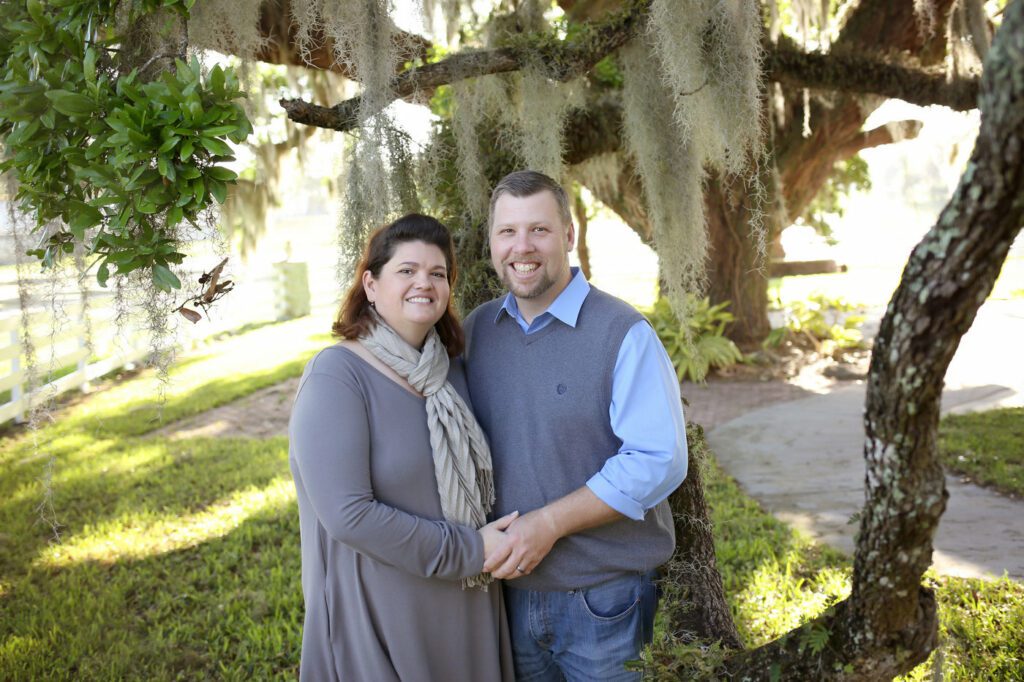Polk County Farm Bureau Recognizes Ag Teacher and Ag Program of the Year
by TERESA SCHIFFER
When the coronavirus pandemic disrupted supply chains early this year, consumers got a crash-course on where their food comes from. Suddenly, local farms found themselves in the spotlight as farmers and ranchers began offering their products for sale to the general public. Ag teachers throughout the nation have been trying to drive this lesson home to students for decades.
Every year, the Polk County Farm Bureau names an Ag Teacher of the Year and an Ag Program of the Year to celebrate the educators working hard to plant the seeds of agricultural respect in young minds.
Tabitha Kramer of McLaughlin Middle Fine Arts Academy in Lake Wales won the distinction of being named 2020’s Ag Teacher of the Year. Kramer, who has been teaching for five years, received her master’s degree in educational leadership from Florida Southern College in Lakeland and her bachelor’s degree in agricultural studies from Warner University. Growing up, she participated in 4-H and FFA in Fort Meade, so she learned early on how much our daily lives depend on agriculture.
“I definitely learned organizational skills and leadership skills,” Kramer recalls of the lessons learned in her youth. During her time at Warner, she interned with her father at Sunshine Growers Nursery in Fort Meade. He encouraged her to broaden her agricultural horizons and delve into as many topics as possible, inspiring Kramer to ultimately become a teacher.
Kramer loves seeing the “ah-ha” moment when something clicks in a student’s mind. In her class, she encourages problem-solving and teamwork.
“I want to instill leadership, responsibility, and the willingness to never give up on their dreams,” Kramer says. Not every student will go into an agricultural career, but Kramer believes every student can learn important lessons or develop lifelong passions from the study of agriculture.
Ag Program of the Year
Haines City High School’s ag program, led by husband and wife team Caroline and Broderic Ogzewalla, was named Ag Program of the Year. Ogzewalla displays a contagious passion for her job that transfers to the students she teaches. The Ogzewallas were joined this year by Hailey Walker as a third teacher for the department.
Together, the Ogzewallas foster a spirit of exploration and innovation among their students. Caroline Ogzewalla jokes that her husband never says no when the kids request a type of animal to raise for class, and consequently the school has a menagerie that includes not just the standard pigs, chickens, and goats that you might expect, but also alpacas, zebu cattle, and an emu, with plans to acquire an alligator soon. The Haines City students are growing sunflowers, herbs, and vegetables in their class gardens, which they sell to the other teachers.
In addition to their regular classroom instruction, Caroline Ogzewalla is also teaching 240 students virtually due to the COVID-19 crisis, which has presented unique challenges. Students have been doing SAE (Supervised Agricultural Experience) projects involving their pets, ranging from dogs and cats to reptiles and arachnids. Ogzewalla has been preparing packets to send home with virtual students containing plant pots and seeds to allow them to participate in growing their own plants at home.
There is a lot going on in the Haines City High School’s ag department.
“We have a greenhouse with ornamental aquatic plants,” Caroline Ogzewalla says. These plants are then sold to a major retailer for sale to the public. “We also have a peach orchard,” she continues. “We have an orange grove. We also have two off-site farms. We have a 10-acre pasture where we keep our big cows, and we have a 16-acre piece of property right across the street from the school that is currently being fenced in for cattle pasture.”
The students show and breed their livestock, then the animals are either kept for breeding, sold to a farm, or taken to auction. Ogzewalla wants to ensure that students are learning the real-life applications of what happens to the animals raised on farms. She accompanies students to livestock auctions two or three times a year.
“By the end of the year, I hope that my students have an appreciation for hard work and a hard work ethic,” she says of her goals for the teens she teaches. She believes that she is preparing these kids for life after high school. Whether or not they gravitate towards an agricultural career, Ogzewalla wants the students to understand the connections between the products that they use every day and agriculture.
“I don’t want them to be afraid to get their hands dirty!”
With teachers like Kramer and the Ogzewallas molding the minds of our future leaders, we can be assured that the upcoming generations will be thoughtful, responsible stewards of our natural resources. These dedicated educators are ensuring that the young people they teach enter the adult world with not just an understanding of where the food we eat comes from, but also with problem-solving skills, respect for others, and an enthusiasm for making positive impacts on society. Kudos to these talented individuals for the well-deserved honors they have recently received!

